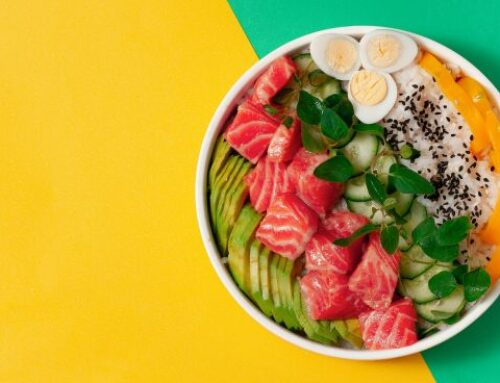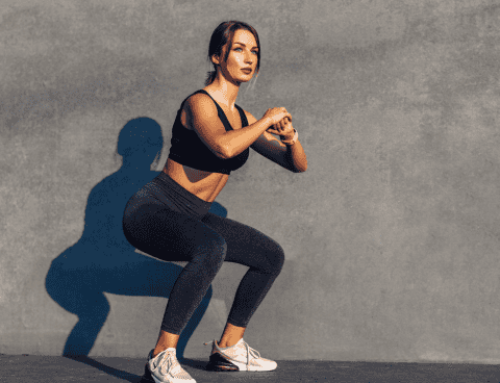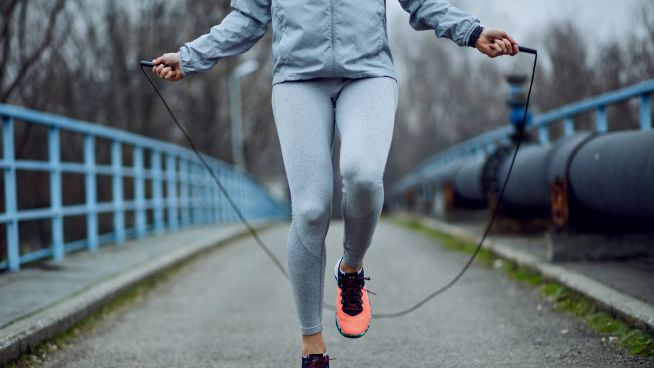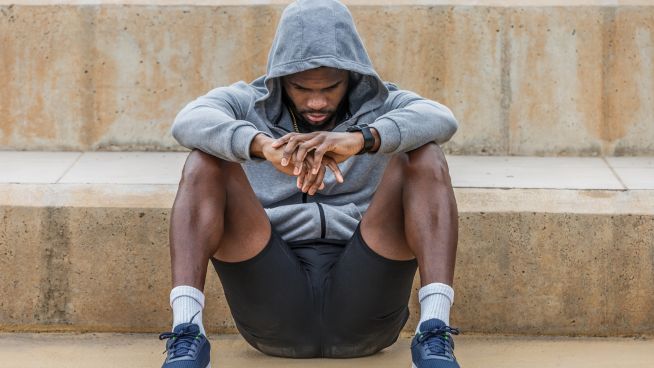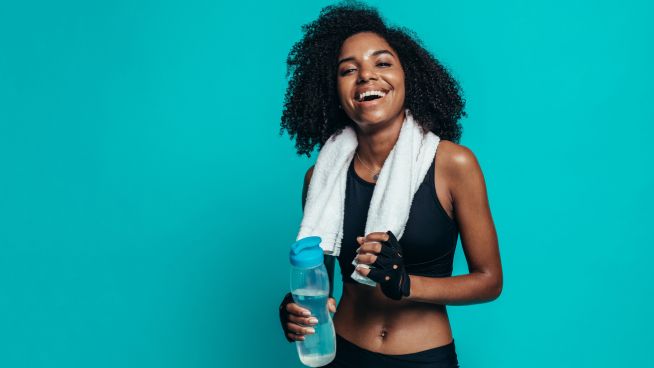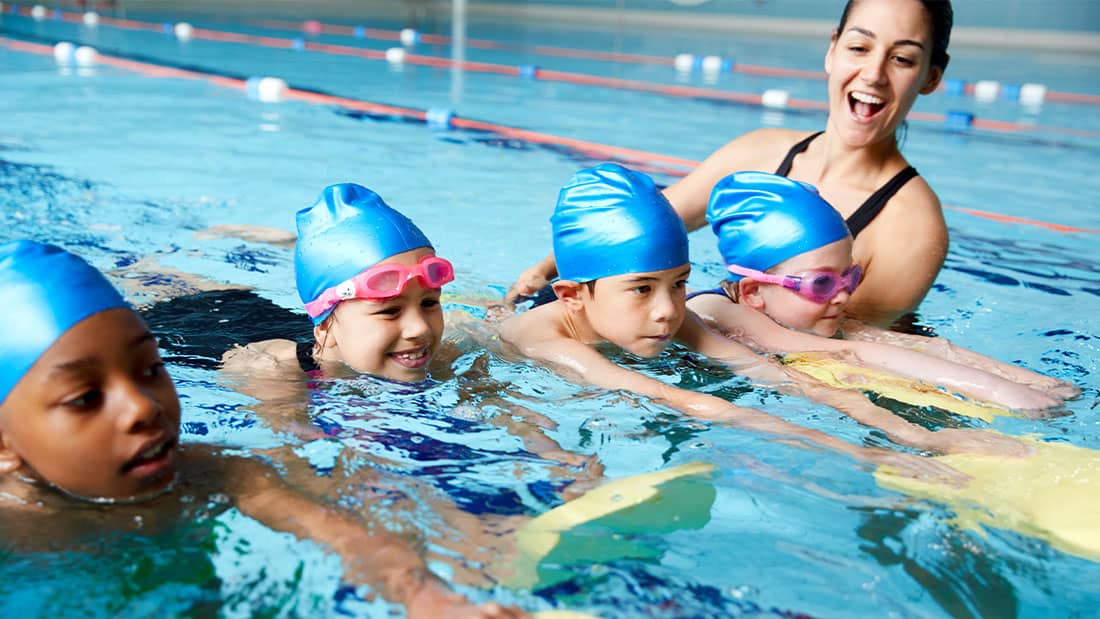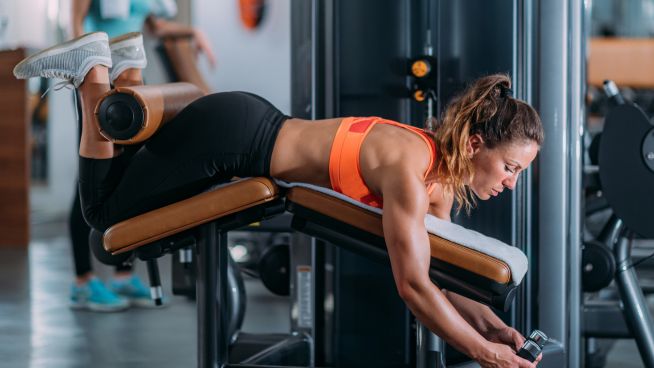Vegetarian Athlete Tips: Olympic Swimmer Kate Ziegler

AP Images
Endurance athletes are known to be voracious eaters—especially during their peak training months (look no further than Michael Phelps’ 12,000-calorie-per-day diet ahead of the London Games). So you might be surprised to learn that Kate Ziegler, a two-time Olympian and four-time World Champion swimmer, powers her performance with fruits, veggies, whole grains and legumes. The 25-year-old Ziegler says her vegetarian diet gives her more energy while speeding recovery between meets and practices. STACK spoke with Ziegler to find out why she became a vegetarian and just how much quinoa it takes to power all of those laps in the pool.
STACK: You’re a vegetarian. Can you tell us a bit about how that came about?
Ziegler: For the longest time, I ate meat and I didn’t really pay attention to my diet. When I was about 20, I started to focus more on my diet. I wasn’t removing snack foods from my diet then, but I was adding in more fruits and vegetables. I then started focusing on a fruit, vegetable and plant-based diet, and I just felt so much better. After that, I started reading about the nutritional aspect of it, the environmental aspect, and that sold me on it, I suppose. So about a year and a half ago, I went vegetarian.
RELATED: Vegetarian Protein Sources
STACK: How did your new diet affect your performances in the pool?
Ziegler: It sped my recovery time. I felt better from practice to practice. I used to have really low energy and I felt tired all the time. I had trouble with anemia. I found that when I started cooking my own meals, reading and learning more about what goes in to proper recovery meals, it really helped my performance.
STACK: As an Olympic-level athlete, do you find it difficult to consume enough calories to fuel all of your workouts?
Ziegler: I haven’t really had a problem with that, because so many foods are not only nutrient-dense but also calorically dense. I make a big bowl of quinoa and throw lentils, beans, salsa, maybe some bell peppers and make a Mexican-type bowl. I’ll sprinkle in nutritional yeast to add that cheesy flavor. Sweet potatoes are one of my favorite foods. There are a lot of ways to reach the caloric need that we have.
RELATED: 5 Non-Boring Sweet Potato Recipes
STACK: Is there a post-practice meal you have to eat?
Ziegler: There is a general guideline that I follow—it’s whatever sounds really delicious that day. [Laughs.] But really, post-practice, it’s usually a 3 to 1 ratio of carbohydrates to protein. That’s not set in stone, but something with carbohydrates that will replenish the glycogen I lost during a three-hour practice. I’ll make a smoothie with fresh fruit and throw in some spinach, flax seed and avocado for some fats. Or I’ll bring a smoothie I can shake up with a pea protein and fresh fruit. I’ll have that in my bag for right after practice, to get it in during that 30-minute recovery window that you have right after a workout.
STACK: What are your favorite high-protein vegetarian foods?
Ziegler: Some of my favorite high-protein foods are lentils and beans. I also eat a lot of nuts, which are good not just for fats, but for protein as well. I really love eggs; they’re one of my favorite foods and you can really do anything with them.
STACK: You’ve recently taken part in the Teaming Up 4 Health campaign. What’s the goal there?
Ziegler: To spread the word on healthy living and healthy eating and how food can fuel you to do your best, regardless of whether you’re an Olympian or just going out to run a 5K. Nutrition is so important for all of us. I’m here to get the word out [about the benefits] of those healthy foods like fruits, vegetables and whole grains that we might not pick up at the grocery store.
STACK: If you met an athlete who was on the fence about going vegetarian, what advice would you give?
Ziegler: I would say if you’re interested in it, give it a try. Maybe you don’t go all the way; maybe you do meatless Mondays and see how you feel. Then you can incorporate it little by little and make it a lifestyle. I’m not trying to convert anyone. I’d just say, look at it as not being vegetarian, look at it as incorporating more fruits and vegetables into your diet, then go from there.
RELATED: Another Reason To Go Vegetarian: You’ll Live Longer
RECOMMENDED FOR YOU
MOST POPULAR
Vegetarian Athlete Tips: Olympic Swimmer Kate Ziegler

AP Images
Endurance athletes are known to be voracious eaters—especially during their peak training months (look no further than Michael Phelps’ 12,000-calorie-per-day diet ahead of the London Games). So you might be surprised to learn that Kate Ziegler, a two-time Olympian and four-time World Champion swimmer, powers her performance with fruits, veggies, whole grains and legumes. The 25-year-old Ziegler says her vegetarian diet gives her more energy while speeding recovery between meets and practices. STACK spoke with Ziegler to find out why she became a vegetarian and just how much quinoa it takes to power all of those laps in the pool.
STACK: You’re a vegetarian. Can you tell us a bit about how that came about?
Ziegler: For the longest time, I ate meat and I didn’t really pay attention to my diet. When I was about 20, I started to focus more on my diet. I wasn’t removing snack foods from my diet then, but I was adding in more fruits and vegetables. I then started focusing on a fruit, vegetable and plant-based diet, and I just felt so much better. After that, I started reading about the nutritional aspect of it, the environmental aspect, and that sold me on it, I suppose. So about a year and a half ago, I went vegetarian.
RELATED: Vegetarian Protein Sources
STACK: How did your new diet affect your performances in the pool?
Ziegler: It sped my recovery time. I felt better from practice to practice. I used to have really low energy and I felt tired all the time. I had trouble with anemia. I found that when I started cooking my own meals, reading and learning more about what goes in to proper recovery meals, it really helped my performance.
STACK: As an Olympic-level athlete, do you find it difficult to consume enough calories to fuel all of your workouts?
Ziegler: I haven’t really had a problem with that, because so many foods are not only nutrient-dense but also calorically dense. I make a big bowl of quinoa and throw lentils, beans, salsa, maybe some bell peppers and make a Mexican-type bowl. I’ll sprinkle in nutritional yeast to add that cheesy flavor. Sweet potatoes are one of my favorite foods. There are a lot of ways to reach the caloric need that we have.
RELATED: 5 Non-Boring Sweet Potato Recipes
STACK: Is there a post-practice meal you have to eat?
Ziegler: There is a general guideline that I follow—it’s whatever sounds really delicious that day. [Laughs.] But really, post-practice, it’s usually a 3 to 1 ratio of carbohydrates to protein. That’s not set in stone, but something with carbohydrates that will replenish the glycogen I lost during a three-hour practice. I’ll make a smoothie with fresh fruit and throw in some spinach, flax seed and avocado for some fats. Or I’ll bring a smoothie I can shake up with a pea protein and fresh fruit. I’ll have that in my bag for right after practice, to get it in during that 30-minute recovery window that you have right after a workout.
STACK: What are your favorite high-protein vegetarian foods?
Ziegler: Some of my favorite high-protein foods are lentils and beans. I also eat a lot of nuts, which are good not just for fats, but for protein as well. I really love eggs; they’re one of my favorite foods and you can really do anything with them.
STACK: You’ve recently taken part in the Teaming Up 4 Health campaign. What’s the goal there?
Ziegler: To spread the word on healthy living and healthy eating and how food can fuel you to do your best, regardless of whether you’re an Olympian or just going out to run a 5K. Nutrition is so important for all of us. I’m here to get the word out [about the benefits] of those healthy foods like fruits, vegetables and whole grains that we might not pick up at the grocery store.
STACK: If you met an athlete who was on the fence about going vegetarian, what advice would you give?
Ziegler: I would say if you’re interested in it, give it a try. Maybe you don’t go all the way; maybe you do meatless Mondays and see how you feel. Then you can incorporate it little by little and make it a lifestyle. I’m not trying to convert anyone. I’d just say, look at it as not being vegetarian, look at it as incorporating more fruits and vegetables into your diet, then go from there.
RELATED: Another Reason To Go Vegetarian: You’ll Live Longer

